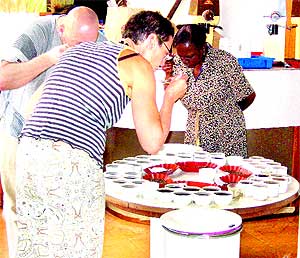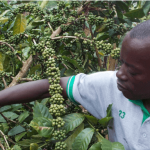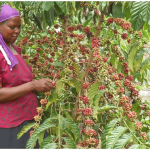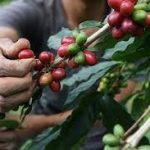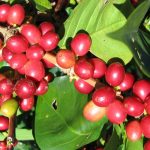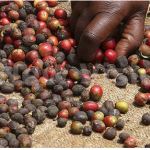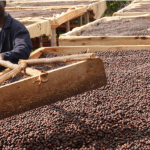UGANDA’s Robusta coffee is now being used as a benchmark for coffee from other countries in London. David Kiwanuka, Uganda Coffee Development Authority (UCDA) manager, quality, regulatory and information services says, Uganda’s Robusta coffee has special attributes.
“It is grown on a high altitude than any other origins (species). It’s not propagated by any genetic modification, but vegetatively multiplied by rooted cuttings and elite seed,” he adds.
Robusta is generally cultivated with no application of chemical fertilisers, fungicides or pesticides. Uganda, being a natural home for Robusta coffee, it grows in a perfect environment with good soils and weather.
Robusta coffee has a hard bean which gives a very good roast. It has a mild soft sweet and neutral taste as well as properties ideal for survival of the crop throughout the year.
Uganda is ranked as the first Commonwealth producer of coffee, second African producer and seventh world producer. Uganda grows two types of coffee, Robusta and Arabica.
Coffee is mainly grown by smallholder farmers numbering 500,000. Coffee contributes about 30% of total export earnings.
The yield for Uganda coffee is 700kg per hectare for traditional Robusta coffee, 2,500kg per hectare for clonal coffee and 600kg per hectare for Arabica coffee. Uganda produces an average of 3.5 million, 60kg bags per year where Robusta is 80% and Arabica 20%.
“Coffee is intercropped with other crops including bananas, beans and shade trees ensuring environment sustainability and food security. Arabica coffee is grown in the mountainous areas of Uganda like Mount Elgon, Mount Rwenzori and South-western (Muhavura ranges) and West Nile (Nebbi),” says Kiwanuka.
Robusta coffee is grown in areas around Lake Victoria. Robusta still grows wild in the Kibaale and Zooka forests in Kibaale and Nebbi districts respectively.
Coffee in Uganda is harvested all year around with two major peaks from November to February and June to September.
Marketing of coffee is fully liberalised. It is mainly handled by middlemen who mobilise the coffee from farms to primary processing factories. The external marketing is handled by 28 exporters. The majority have facilities for export reprocessing.
About 81% of Uganda’s coffee is destined for the European Union and 14% is exported to the Sudan. By 1960, coffee production had risen to about 2 million bags and reached a peak of 3.7 million in the 1972/73. Due to civil strife, marketing monopoly and old age coffee trees, production had declined to as low as 2.1million bags by 1991.
Liberation and the formation of UCDA has enabled development of programmes that have boosted production and improved marketing of Uganda coffee.
UCDA’s mission is to promote and oversee the development of the coffee industry through research, quality assurance, improved marketing among other roles.
Uganda is a member of the international Coffee Organisation, Inter Africa Coffee Organisation, East African Fine Coffee Association and Specialty Coffee Associations of America and Europe (SCAA & SCAE).
From: New Vision

